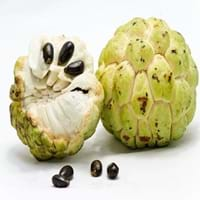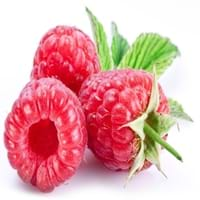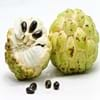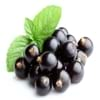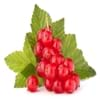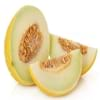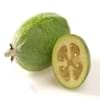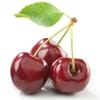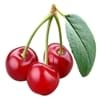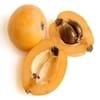Health Benefits
Cancer prevention, Heart care, Regulation of heart rate
Cancer prevention, Heart care, Prevents macular degeneration, Reduces blood circulation problems
General Benefits
Anti oxidant properties, Anti-inflammatory properties, Boosts immune system, Controls blood pressure, Digestive aid, Strengthens bones
Anti-inflammatory properties, Controls blood sugar levels, Digestive aid, Eye care, Helps in weight loss
Skin Benefits
Reduces wrinkles, Skin rejuvenation
Anti-aging benefits, Brightens and lightens complexion
Hair Benefits
Promotes longer and healthier hair, Treatment of dandruff, Treatment of Lice
Acts as moisturizer, Regulates hair growth, Shiny hair
Allergy Symptoms
Anaphylaxis, Itching, Skin rash, Swelling of face
Breathing difficulty, Eczema, Hives, Itching, Nasal congestion, Runny nose, Sneezing, Watery eyes, Wheezing
Side Effects
Allergic reaction, Possibly unsafe during pregnancy
Allergic reaction
Best Time to Eat
As a snack in the late afternoon, Don't consume at night and before bed, Morning time (before lunch)
Best if taken as a breakfast (or empty stomach), As a snack in the late afternoon, Don't eat after meal, Morning time (before lunch)
Vitamin A (Retinol)
Not Available
Vitamin B5 (Pantothenic Acid)
Vitamin C (Ascorbic Acid)
Vitamin K (Phyllochinone)
Not Available
Calories in Fresh Fruit with Peel
Not Available
Calories in Fresh Fruit without Peel
Not Available
Calories in Frozen Form
Not Available
Calories in Dried Form
Not Available
Calories in Canned Form
Not Available
Calories in Juice
Not Available
Calories in Jam
Not Available
Calories in Pie
Not Available
Season
Autumn, Spring, Winter
Summer
Varieties
Andrews, Amarilla, Asca, Baste, Bays, Bayott, Behl, Canaria, Capucha, Deliciosa, Ecuador, El Bumpo, Guayacuyán, Jete, Juniana, Knight, Nata, Popocay, Sander, Smoothey, Tumba, Umbonada, Whaley and White Juliana
Amity, August Red, Boyne, Canby, Caroline, Comet, Dinkum, Dorman Red, Latham, Meeker, Black Hawk, Hayda, Lauren, Meeker and Latham
Color
Green, Yellow
Black, Purple, Red, Yellow
Origin
Ecuador
Europe, North Asia
Soil Type
Sandy loam
Sandy loam
Climatic Conditions
Warm
Cold
Facts about
- Cherimoya is also called as custard apple or chirimoya.
- The word cherimoya came from the Quechua word,'chirimuya',which means 'cold seeds'.
- The cherimoya is called as 'the tree of ice cream'.
- There are more than 200 varieties of raspberries.
- In USA, 90% of the raspberries are grown in Washington, California and Oregon.
- They do not ripe after they are picked.
- A raspberry contain 100 to 120 seeds.
Top Producer
Spain
Russia
Other Countries
Argentina, Chile, Colombia, Egypt, Italy, Mexico, Peru, South Africa, United States of America
Azerbaijan, Canada, Mexico, Poland, Serbia, Spain, Ukraine, United Kingdom, United States of America
Top Importer
United States of America
United States of America
Top Exporter
Spain
Poland
Botanical Name
Annona cherimola
Rubus Idaeus
Synonym
Not Available
Not Available
Subkingdom
Tracheobionta
Tracheobionta
Division
Magnoliophyta
Magnoliophyta
Class
Magnoliopsida
Magnoliopsida
Subclass
Magnollidae
Rosidae
Order
Magnoliales
Rosales
Family
Annonaceae
Rosaceae
Species
A. cherimola
R. idaeus
Generic Group
Not Available
Rose
Compare Cherimoya and Raspberry
It is important compare Cherimoya and Raspberry as both the fruits have a different nutritional value. Their comparison can be done on the basis of their vitamin and mineral content, calories, benefits as well as characteristics, making it easier for us to choose the best fruit for our diet. Their general health benefits are as follows:
Cherimoya Benefits: anti oxidant properties, anti-inflammatory properties, boosts immune system, controls blood pressure, digestive aid and strengthens bones.
Raspberry Benefits: anti-inflammatory properties, controls blood sugar levels, digestive aid, eye care and helps in weight loss.
Fruits are also used as a remedy for various hair problems. The hair benefits of Cherimoya are: promotes longer and healthier hair, treatment of dandruff and treatment of lice and hair benefits of Raspberry are: acts as moisturizer, regulates hair growth and shiny hair. Some fruits are known to cause allergic reactions. The allergy symptoms of first fruit are: anaphylaxis, itching, skin rash and swelling of face and the symptoms of second fruit are: breathing difficulty, eczema, hives, itching, nasal congestion, runny nose, sneezing, watery eyes and wheezing. Get sorted Cherimoya vs Raspberry comparison with the help of fruit comparison tool by fruitvs.com.
